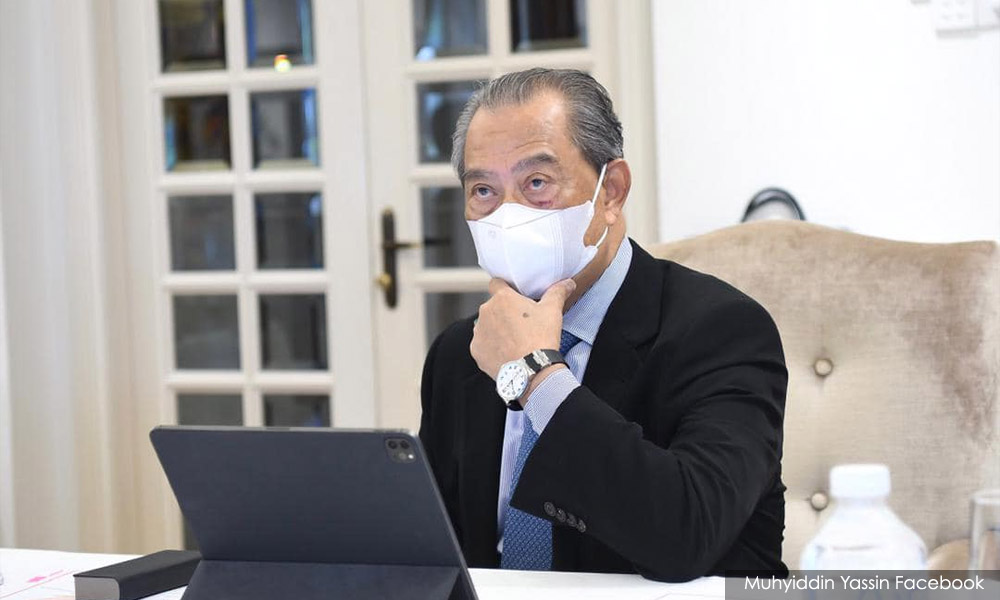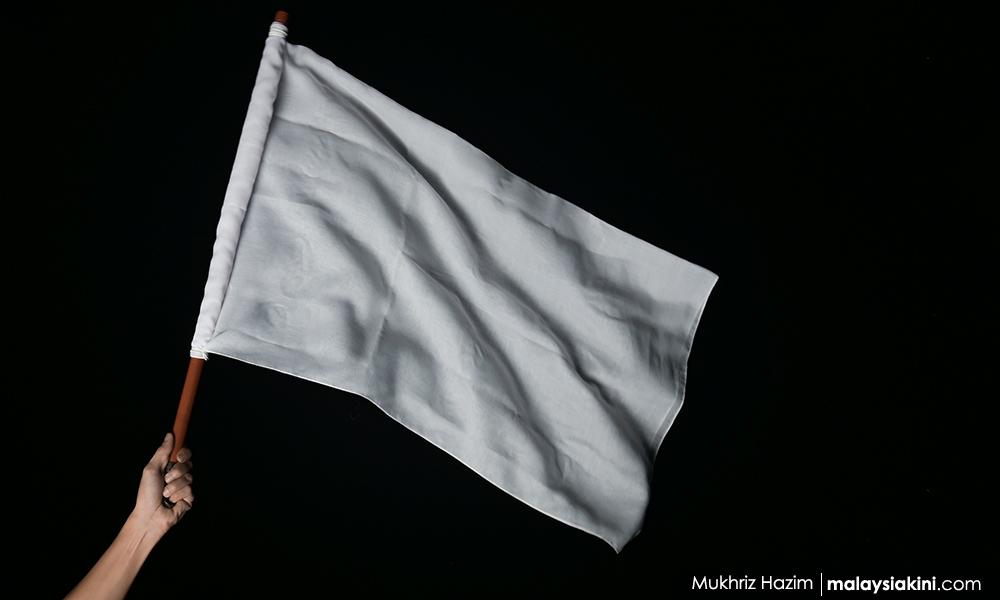Malaysians rise up
As millions in Malaysia are living under a punishing emergency lockdown during an imposed emergency in the Klang Valley and across many parts of the country, the nation’s politics are being transformed.
Covid-19 will have many legacies - but one of these will be on politics.
Changes are unfolding with the rise of virtual solidarity movements, unprecedented contempt of authorities (in their durian parties) and the emergence of new forms of protest. The traditional bastions of politics - political parties and the politicians that lead them - are no longer setting narratives or effectively channelling discontent as they did in the past.
In the last 24 hours, there have been over 200,000 tweets in the ‘black flag’ protest against the government, many calling for the resignation of the current government and all of them expressing anger at ineffective policies that are causing hardship and not seen as resolving the effects of the pandemic. This is only the tip of a cauldron of resentment against a government and leadership that is seen by many to be failing its people.
The last two years of Malaysia’s politics has focused on elites - their interests, ambitions and conflicts. These elite dynamics brought down an elected government to bring about reform in February 2020 and continue to shape current politics.

As the prime minister remains in hospital and the clarity of the nation’s leadership uncertain, politicians are working behind the scenes to ‘get the numbers’ to lead. Their focus is on holding onto or securing power - a difficult task given long-standing personal antagonisms, factionalism and political polarisation.
A crucial element of this deal-making dynamic involves immunity for past abuses that resulted in the previous government being kicked out of office. Ironically, reaching accommodation on these could prove to be the lynchpin of success in navigating a path to power.
Rising anger
On the ground, however, there is another politics altogether. Malaysians are rising up; they no longer are able to contain their anger and frustrations. The simmering discontent is coming to the surface. The causes of the protest are multiple - failure of leadership, ineffective policies in managing a pandemic, underlying resentment towards a government that came in through the backdoor and a lack of adequate protection for the people during a crisis.
Of all the issues that are driving this mobilisation, four are the most poignant. First, is economic devastation. Hunger and hardship are being experienced like never before. No one has been spared from the economic downturn and the government is being seen as responsible for it and for failing to provide adequate/timely assistance, especially for the most vulnerable.
Second, Malaysians are equally deeply upset with scenes of patients on the floor in the KL Hospital and stories of inexcusable suffering of their fellow citizens, the perceived governance failures.
Third, disconnected leaders are seen to be immune to the suffering. That leaders have opted to eat in restaurants while those restaurants are closed for everyone else, and others have a party to eat durian while many cannot afford the price of durian has shown a lack of understanding and only provoked anger further.
Finally, ‘cruel’ policies are seen by some to be compounding suffering through unfair fines and lockdowns that are seen as both ineffective and harsh.
These sentiments have been gaining traction and are evident in the ongoing #Lawan protest.
A tipping point for anger in this protest came last week when Kedah Menteri Besar Muhammad Sanusi Md Nor from Islamist PAS called the white flag movement ‘propaganda’.
The white flag citizen-inspired solidarity movement emerged out of a desire to help those in need, a recognition of the suffering of ordinary citizens who have experienced hardship during the lockdown with a desire to assist. Flags were flown by citizens from all communities.

On his part, Sanusi recognised that each flag flown symbolised governance failure, as it revealed shortcomings in the delivery of basic needs. For the ‘all Malay’ government, the movement showcases its inability to ‘protect’ the people, its shame.
Rather than respond with more assistance or to co-opt the movement as tried initially by Housing and Local Government Minister Zuraida Kamaruddin (and was successfully done last year with the solidarity #kitajagakita) the reaction was to oppose, even demand the removal of the flags.
This action only served to pour acid on an open wound, with strong reactions – most obvious as the flag moved from ‘white’ to ‘black’ in protest.
Covid-19 protests
The current protests differ in many ways from those in the recent decades. While there is a call for the current prime minister to step down and sentiments calling for a change of government as in the past, these protests lack centralised leadership and are not closely connected to any political party.
Like the protests taking place across the region in Thailand and in Myanmar, they are driven by opposition to a system of governance and leadership that is seen as unjust and unfair, with the young, the hardest hit by the pandemic, a driving force of the movement.
In Malaysia, the focus is primarily on poor Covid-19 governance, while elsewhere in the region the focus is comparatively broader.
There is little fear among many Malaysian protesters. Many have little to lose, as they see their lives as being destroyed.
The level of anger is unprecedented, far worse than sentiments against Najib Abdul Razak in 2018. Cracking down with arrests on artists and activists or taking down flags have only served to intensify anger.
The protests cut across ethnic and class lines. Although the level of anger and frustration varies, they are in many ways ‘whole of society’ protests.
What further differentiates these protests from the neighbours is that, for now, they are confined to social media.
If there is anything that divides the protestors is that some see the solution as new leadership/government, while others see the solution as requiring new policies or fundamentally new governance. There are also differences in who should lead, with many having a lack of faith in all of the current options.
Rather than feel powerless in Covid-19, Malaysians are responding and are taking power into their own hands. As governance has underperformed, citizens have spoken up and stepped up. Now they are shouting and stepping out to express their call for improved governance.
How these protests will evolve remains unclear. The recent past teaches us, however, never to underestimate Malaysians in their efforts to seek change. - Mkini
BRIDGET WELSH is a senior research associate at the Hu Fu Centre for East Asia Democratic Studies and a senior associate fellow of The Habibie Centre. She currently is an honorary research associate of the University of Nottingham, Malaysia's Asia Research Institute (Unari) based in Kuala Lumpur. She tweets at @dririshsea.
The views expressed here are those of the author/contributor and do not necessarily represent the views of MMKtT.
✍ Credit given to the original owner of this post : ☕ Malaysians Must Know the TRUTH
🌐 Hit This Link To Find Out More On Their Articles...🏄🏻♀️ Enjoy Surfing!




















Post a Comment